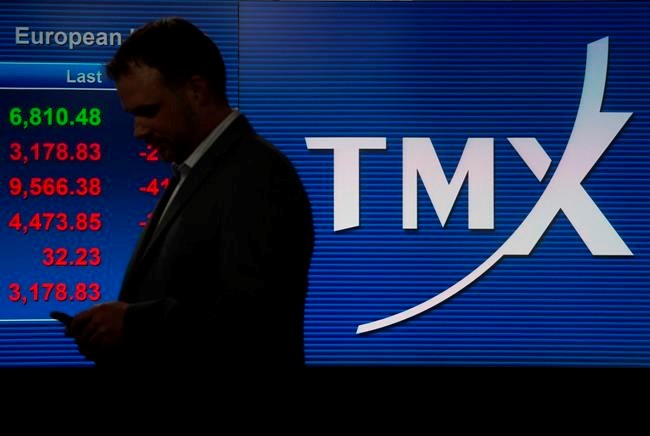TORONTO — North American stock markets dropped Thursday after several days of gains amid uncertainty about the economic recovery despite strong U.S. retail sales.
Colin Cieszynski, chief market strategist at SIA Wealth Management, called it a "summer of sideways."
"I still think that's the situation we're probably in where it's likely to be more of a selective market than these big broad moves up and down that we've seen in the first half of this year," he said.
Prospects for an economic recovery have been unclear with potential for setbacks as a spike in COVID-19 infections has prompted some U.S. states to reclose.
U.S. retail sales were "spectacular" in June, climbing 7.5 per cent after May's 17.7 per cent jump.
However, weekly jobless claims were slightly worse than expected as 1.3 million Americans filed for unemployment benefits last week, the 17th consecutive week exceeding one million as 32 million Americans remained on unemployment benefits.
The cumulative effect of a number of factors, including jobless claims, rising infections and reclosings have hurt sentiment, Cieszynski said.
"It's becoming apparent that this kind of uncertainty and choppiness could drag on awhile."
Investors appear to have taken advantage of strong market run-ups to crystallize profits by moving capital from overperforming sectors like technology into other areas where they hope to make some money.
"It doesn't seem like people are taking money and going to cash, they're just taking money and redeploying it elsewhere into stocks," he said.
The S&P/TSX composite index closed down 38.83 points at 16,024.50.
In New York, the Dow Jones industrial average was down 135.39 points at 26,734.71. The S&P 500 index was down 10.99 points at 3,215.57, while the tech-heavy Nasdaq composite was down 76.66 points at 10,473.83.
Technology was the weakest sector in Canada, losing 1.5 per cent as Shopify Inc. fell 3.1 per cent.
Energy and materials also lost ground on lower crude oil and gold prices, but still remained relatively strong.
Whitecap Resources Inc. lost 2.1 per cent, Vermilion Energy Inc. two per cent and Canadian Natural Resources 1.8 per cent amid a big drawdown of U.S. crude stockpiles, as well as OPEC countries and Russia saying they will roll back 2.1 million barrels per day of production cuts from August.
The September crude contract was down 47 cents at US$40.93 per barrel and the August natural gas contract was down 5.5 cents at US$1.72 per mmBTU.
The August gold contract was down US$13.50 at US$1,800.30 an ounce and the September copper contract was 1.65 cents at US$2.90 a pound.
In the materials sector, which includes gold producers, First Quantum Minerals Ltd. saw the biggest drop with four per cent, followed by Alacer Gold Corp. at 3.6 per cent.
Gold lost a little sparkle after several central banks reporting this week didn't increase stimulus as they've done in the past, said Cieszynski.
The health-care sector was also weaker as shares of Aurora Cannabis Inc. lost 5.3 per cent.
The Canadian dollar traded for 73.84 cents US compared with 73.89 cents US on Thursday.
Industrials rose even though Air Canada shares partially reversed from Wednesday's strong gains by losing nearly four per cent in an example of future market trends, said Cieszynski.
"It's the kind of market where we may not see things go and go and go. We'll probably have some good days and some bad days and bouncing back and forth between the two."
This report by The Canadian Press was first published July 16, 2020.
Companies in this story: (TSX:AC, TSX:FM, TSX:ASR, TSX:ACB, TSX:SHOP, TSX:WCP, TSX:VET, TSX:CNQ, TSX:GSPTSE, TSX:CADUSD=X)
Ross Marowits, The Canadian Press



